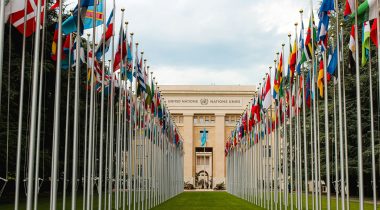
Naomi Fowler ■ Should Europe trust trusts?

 Embargoed until 6pm CET 28 June 2016
Embargoed until 6pm CET 28 June 2016
Should Europe trust trusts?
Press Release: New report exposes holes in global and EU anti-money laundering rules on trusts, and explains how they can be fixed.
Trusts, in the popular imagination, are mostly for family matters, such as a rich father deciding how his offspring will divide the inheritance. But they are far more widely used: not just for multiple commercial purposes, but also, as the Panama Papers reminded us, to commit crimes and abuses such as tax evasion, money laundering, corruption, defrauding creditors, and more. Trusts are in many ways a greater threat to democracy than opaque shell companies – yet also harder to crack. The accompanying Tax Justice Network briefing exposes shortcomings in current international frameworks for dealing with trusts, and explains what international bodies such as the Financial Action Task Force (FATF,) the European Union, and major countries, could do to pierce trust-related secrecy and prevent their misuse.
Our new report Drilling down to the real owners – Part 2, following our earlier report on shell companies, analyses the language around trusts, in both the FATF[1] global recommendations on Anti-Money Laundering, and the fourth European Anti-Money Laundering Directive[2]. The Directive opens for amendments from July 5, and it comes into force by mid-2017 across the European Union.
For example: the EU Directive’s Article 31 on trusts, in contrast to a much more robust article on shell companies, suggests a deliberate intent not to regulate trusts properly. Its scope is at best ambiguous, limited and rather unenforceable: the definition of beneficial owners is weak; requirements to hold information in a central registry are undone by an undefined term (there must be “tax consequences” – which in any case is irrelevant in money laundering cases) and it provides no public access to information.
This second report focuses on a major, barely addressed issue: lack of effective registration of (let alone public access to) trusts’ beneficial owners: the real persons who own, control or benefit from trusts.
Drawing on TJN’s Financial Secrecy Index and covering more than 100 jurisdictions, we find trust regulation is full of holes. We argue that every jurisdiction should require registration in a central and public registry of the beneficial owners of (a) all domestic law trusts and (b) all trusts with any connection point to a jurisdiction[3].
Given the complex ownership structures of trusts and the potential for subterfuges, their “beneficial owners” should include all related persons: all settlor(s), protector(s), trustee(s), beneficiary(ies), and any other person mentioned in a trust document. This comprehensive list of beneficial owners is based on standard provisions required by the OECD
On the launch of the report Andres Knobel, co-author of the report said:
“Trusts are the new elephant in the room. Unless they are properly covered by new beneficial ownership requirements, they will become the vehicle of choice of tax evaders, money launderers and other criminals who are escaping the new transparency provisions that apply to companies”
Markus Meinzer, co-author of the report said:
“Trust laws around the world have become the playground of unscrupulous lawyers whose livelihoods depend on helping shady clients escape accountability for their actions elsewhere. Democracies have a duty to protect their citizens by ensuring that laws and regulations can be enforced – so they must urgently get to grips with trusts.”
Naomi Fowler, producer of the Tax Justice Network monthly podcast, the Taxcast, said:
“We have always said that any registry of beneficial ownership must include offshore companies, trusts and foundations. To fail to do that would simply result in a stampede towards any vehicles not included in a public registry. It’s not rocket science.”
Press contacts:
Andres Knobel [email protected] tel. +54911 6008 3197
Markus Meinzer [email protected] tel. +49 178 3405673
About the Tax Justice Network
We are an independent international network focused on tax justice: the role of tax in society, and the role of tax havens in undermining democracy, boosting inequality and corrupting the global economy. We seek to create understanding and debate, and to promote reform, especially in poorer countries. We are not aligned to any political party.
End
[1] Updated (and published) in 2012 by the FATF, an Inter-governmental body.
[2] A common European framework designed to establish an EU-wide approach to preventing the laundering of the proceeds of crime. (2015/849).
[3] A “connection point” would include having any of a trust’s related person resident in such jurisdiction (a settlor, protector, trustee, beneficiary, etc.) or where trust assets are located there.
[4] Specifically, the OECD’s Common Reporting Standard (CRS) for Automatic Exchange of (bank account) Information which will be implemented by more than 90 jurisdictions, including all EU countries.
The full report can be downloaded in PDF format here.
Related articles

How the UN Model Tax Treaty shapes the UN Tax Convention behind the scenes
The 2025 update of the UN Model Tax Convention
9 July 2025
One-page policy briefs: ABC policy reforms and human rights in the UN tax convention

Bad Medicine: A Clear Prescription = tax transparency
Tax justice pays dividends – fair corporate taxation grows jobs, shrinks inequality

Reclaiming tax sovereignty to transform global climate finance
Reclaiming tax sovereignty to transform global climate finance
16 June 2025

The “millionaire exodus” visualised
The millionaire exodus myth
10 June 2025


